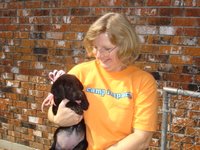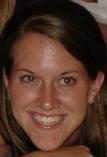My last full day in Palestine-Israel was August 10. I spent that day traveling north (not too far north- still in the west bank) to an Israeli settlement called Harmesh to visit a friend who is stationed there in the Israeli army.
On the way to Harmesh I talked with some Israeli soldiers on the bus (the bus stops were full of young women and men heading to war). These particular guys do not want to be there, but they feel like they have the responsibility to fight for Israel. These soldiers are reservists and have already served 3+ years in the Israeli military when they were 18. Now they are 25 yrs old. They are stationed in a settlement that is slated for demolition (meaning, it is an illegal settlement even under Israeli law & the military is planning to evacuate it). I asked if the Israeli settlers in that particular settlement are violent and angry about the pending demolition. "No!," one soldier said, "These settlers are not ideological settlers. They want to leave. They are just waiting for the government to give them money."
These particular settlers are there because it is cheap to live in Palestine. I think I understood the soldiers to say that the government subsidizes the settlers homes.
The soldiers asked why I was there so I told them about the situation in At-Tuwani. They were surprised at the things I said- I don't think they believed that Palestinians are suffering. They have never been in Palestine except as soldiers.
One soldier told me, "Well, if Israel were to give them [Palestinians] one thing, then they would just keep taking. The Palestinians are never satisfied." I told him that I wouldn't be satisfied if my life was as restricted as the people of Tuwani & I asked if he would be.
He changed the subject and said, "But that is all the news shows. You never see dead soldiers on the news. You don't see our suffering. When I was in the army before, we carried out dead soldiers. The world never saw them."
I said, "I'm sorry... Why is that? Why don't we see the army's suffering on the news?"
I don't know what he has seen. I know it must be awful and I wish I and the rest of the world could see his pain. We should see his pain. If we support sending kids off to fight, we should see what we are doing to them and be willing to enter their pain with them.
He & I talked for a little longer and then he told me that we had reached my stop so I said goodbye- "Peace be with you."
"Shalom..."
I have to admit that I was pretty nervous about hanging out in a settlement and/or at a military base. I felt a little dishonest by being there... The settlers did not know that I was living and working against the occupation in a Palestinian village & only 1 of my Palestinian neighbors knew that I was going to visit a military base/settlement. In retrospect, I think it would have been fine, and even good, to tell both, but the opportunities never arose & I didn't seek out the conversation. I also wonder if I reject any attempt at solidarity when I take advantage of opportunities that are not available to Palestinians. For example, no Palestinian could take a bus into Harmesh. I was also nervous about how I would react to that environment. Like, would I be able to smile and enjoy time with my friend while we sat in a settlement? or, would he notice how uncomfortable I was & would that upset him?
My friend was waiting at the bus stop for me in the seemingly abandoned settlement of Harmesh. He said he had not spoken to a single settler since he had been there. The settlement was gorgeous, lots of flowers and it overlooked a beautiful valley and several Palestinian villages. When we turned the first corner, this guy with tatoos and piercings and no shirt was washing his car. I looked at my friend as if to say, "Is he a settler?"
Settlers in At-Tuwani are very religious (or at least claim to be very religious). The men & women are always covered, the men have long curly side burns, and men definitely do not have tatoos or piercings. My friend knew what I was thinking & he laughed & said, "Angela, these settlers are not religious. They are just here because it is cheap."
As we approached the guy, he greeted us and then invited us in for tea. He and his girlfriend live together in the cute, small house. They pay 100 shekels a month for rent, less than $25. Israel is not a cheap place to live. This rent is ridiculously low. He said they get such cheap rent because the owner of the house wants to keep it occupied.
There are only 22 families living in the settlement of Harmesh right now. But, this guy said that many settlers will move there soon before the government evacuates the settlement because they want to recieve money from the Israeli government. From what this settler and the soldiers on the bus said, it sounds to me like the Israeli government exploits the poor by using them to occupy stolen land? When they are no longer useful politically, the government pays them off to move? (That's not to say that these settlers are not responsible for the fact that they are living in an illegal settlement on stolen land. They are.)
The settlement seems so quiet. This settler was the only person that we saw in the streets, but he assured us that Harmesh is not a nice place to live. At this point, his girlfriend came in from her job, cleaning other settlers' homes. She told us that she hates all Muslims. Twice in the last 2 years settlers from Harmesh have been killed by Palestinians.
I know nothing about the area around Harmesh so I don't know specifics about the history of that particular settlement or about the violence done to Palestinians who live nearby.
I only heard a few stories from this 1 settler couple in Harmesh. She is a maid and he is a struggling (and very, very talented!) musician. My friend and I sat and sipped tea while he jammed on his guitar, she smoked, and they both told us stories. We all watched the equivalent of Israeli MTV, making fun of the whacky outfits & hairstyles. We talked about life, music, work, the weather... normal things. It would have been a very normal afternoon with very normal people- except that we were an Israeli soldier called to duty because his country is at war, 2 Israeli settlers living on stolen land because they are poor and rent there is affordable, and a random girl from the U.S. who is living & working in a Palestinian village.

 (These are pictures of our new puppy, Sadi. My 2 younger sisters & I surprised our mom with a new puppy from the humane society for her birthday. She was not as excited about the new puppy as we were, but now she loves her...)
(These are pictures of our new puppy, Sadi. My 2 younger sisters & I surprised our mom with a new puppy from the humane society for her birthday. She was not as excited about the new puppy as we were, but now she loves her...)

 As Israel’s wars in Lebanon and Gaza rage, people in At-Tuwani attempt to maintain “normal” life.
As Israel’s wars in Lebanon and Gaza rage, people in At-Tuwani attempt to maintain “normal” life.

